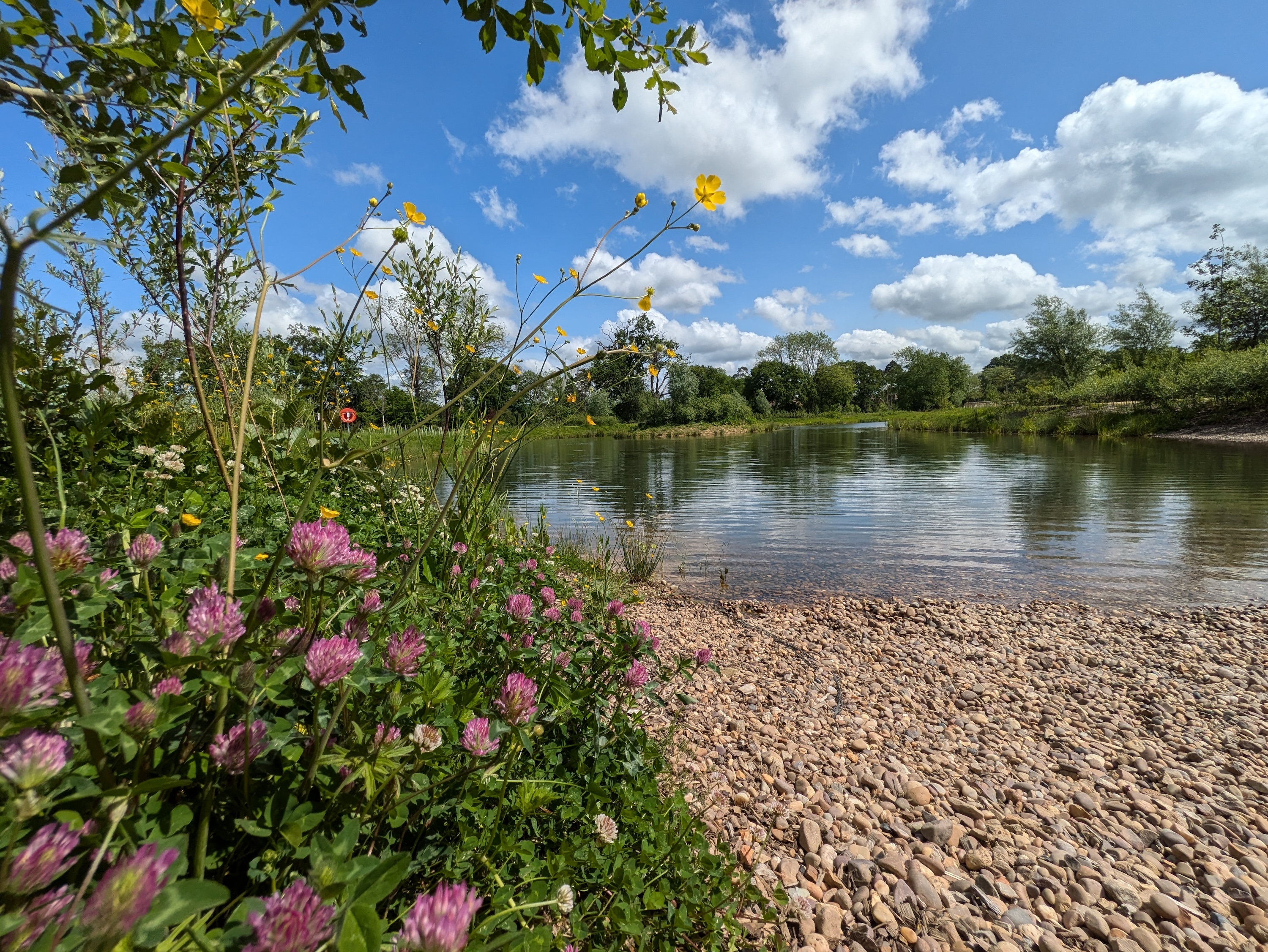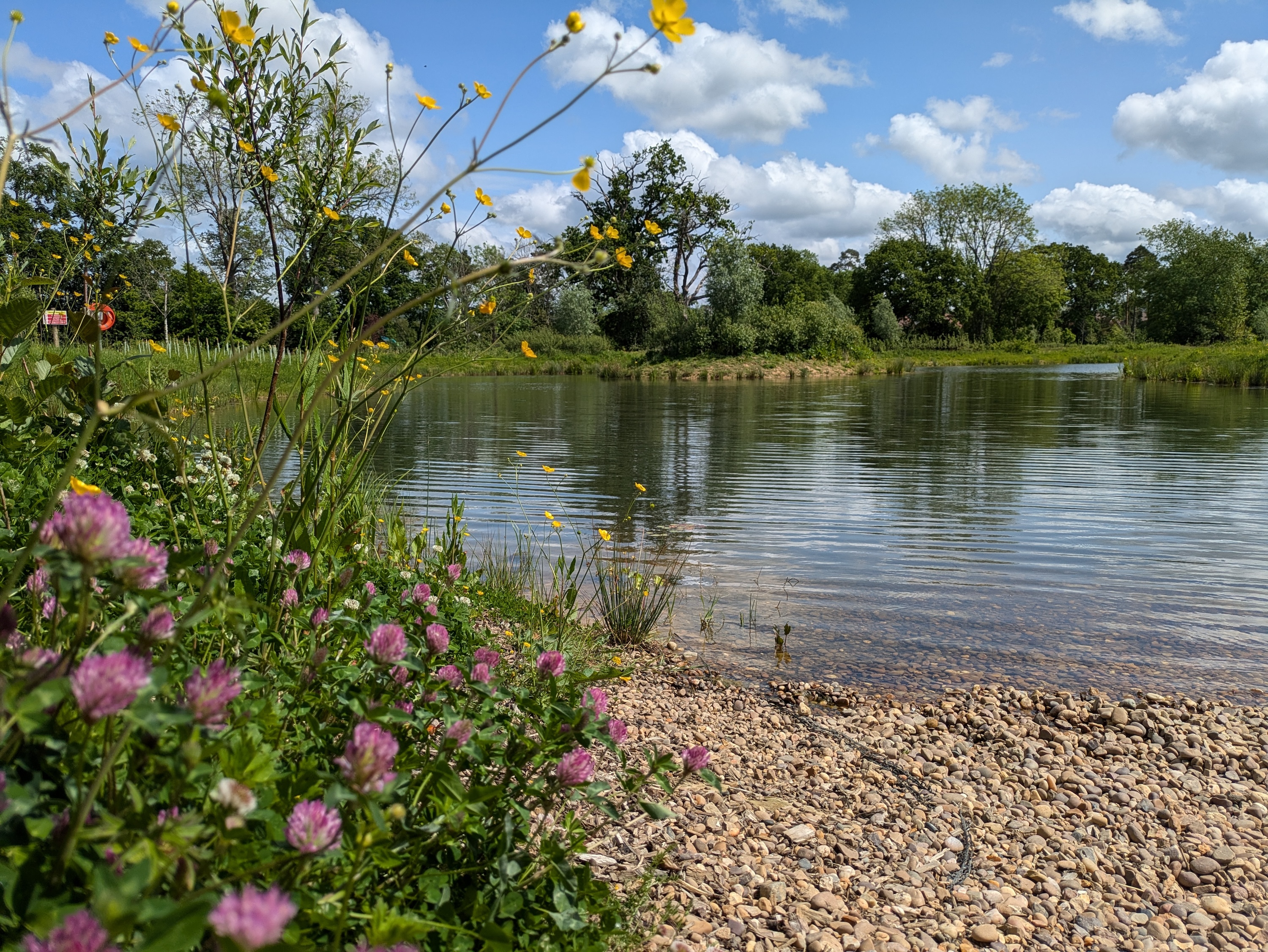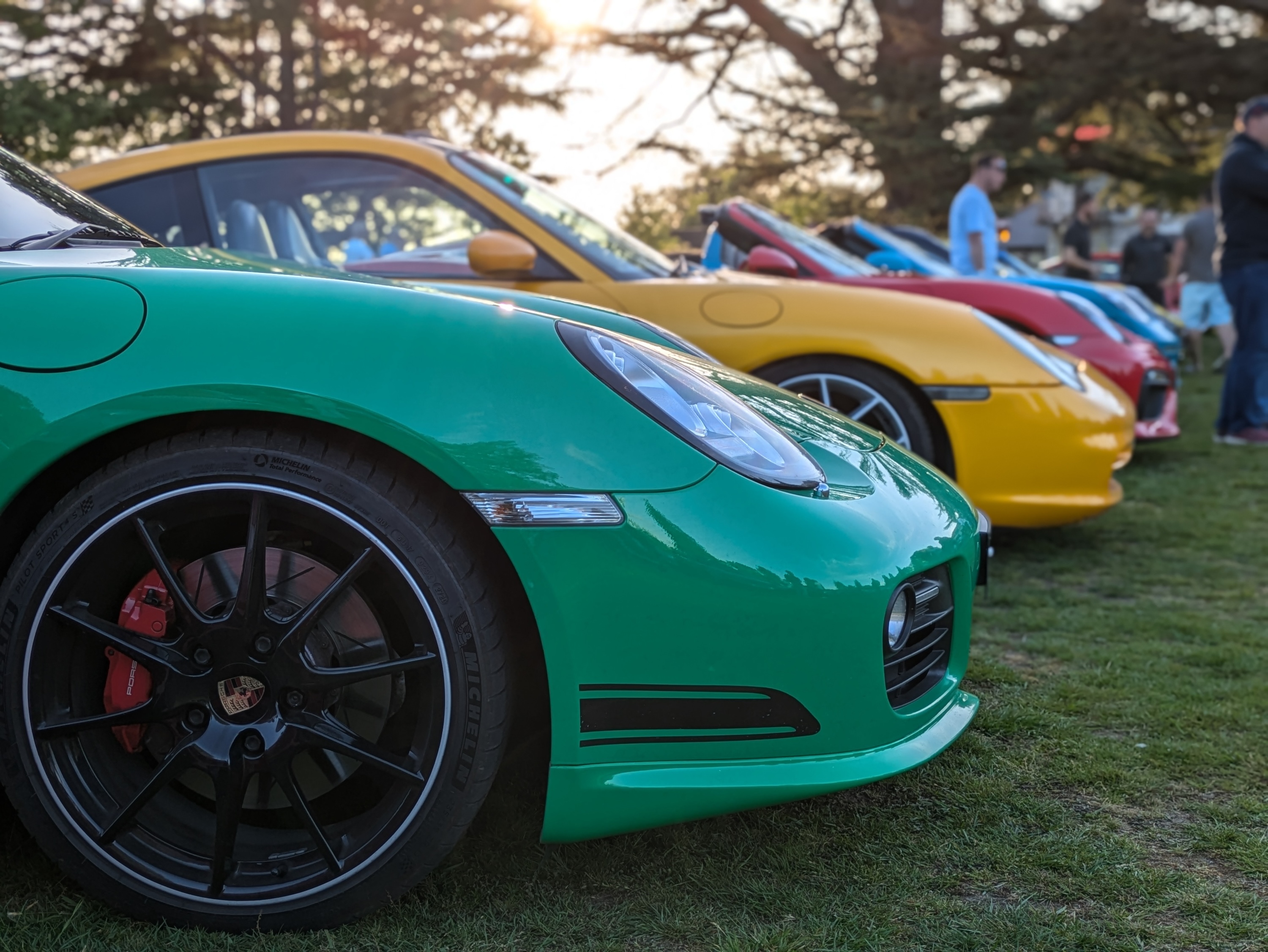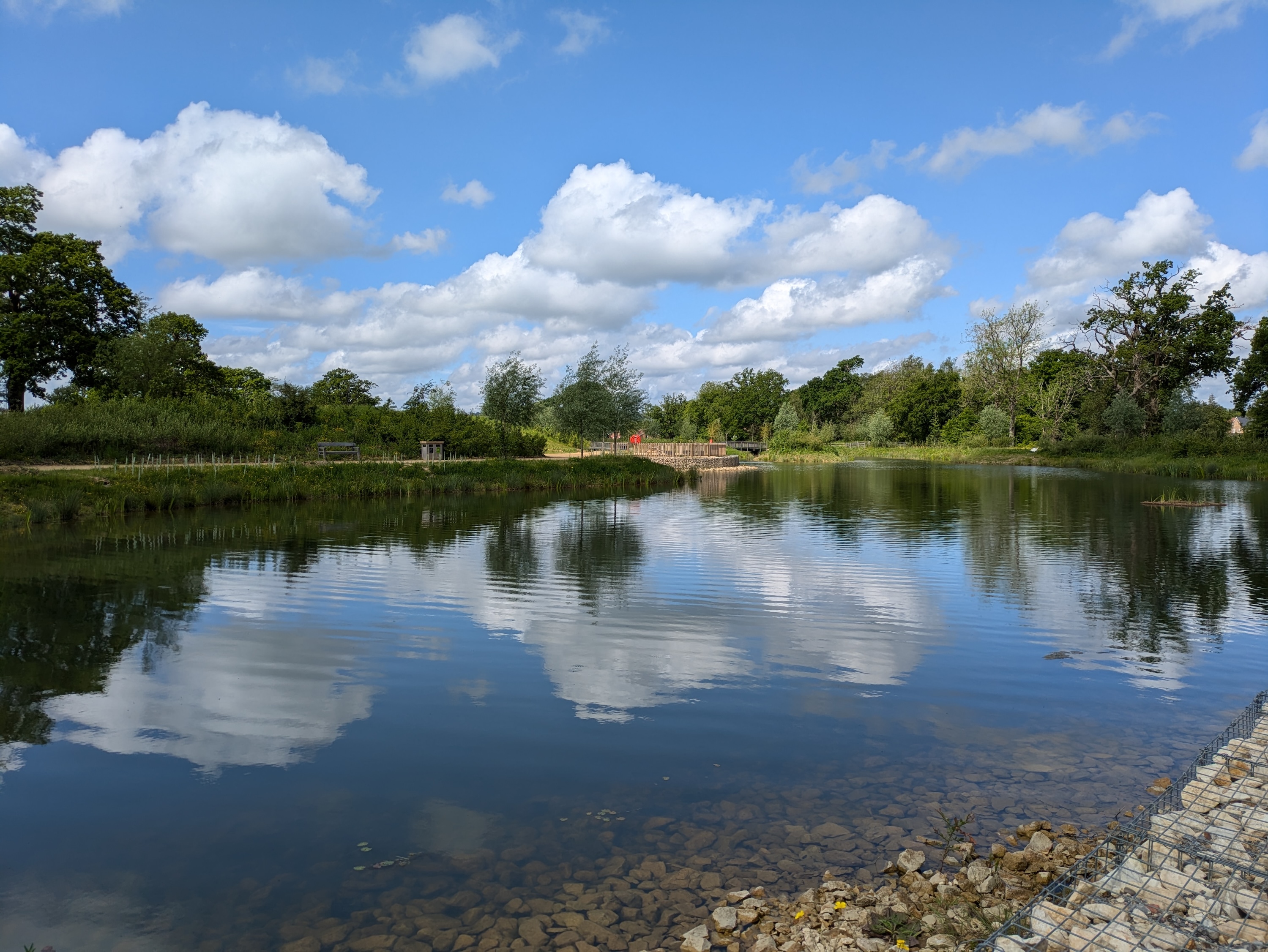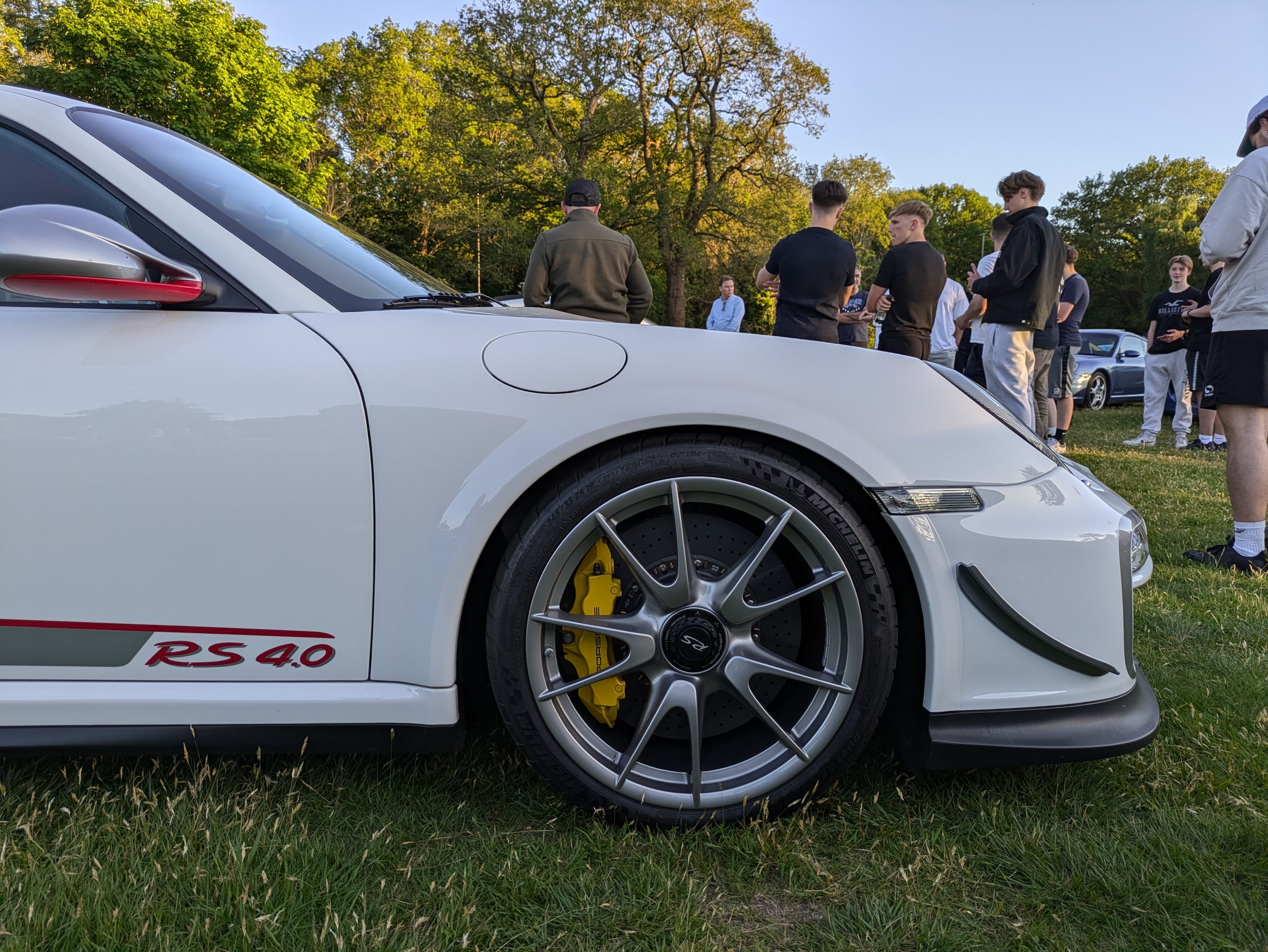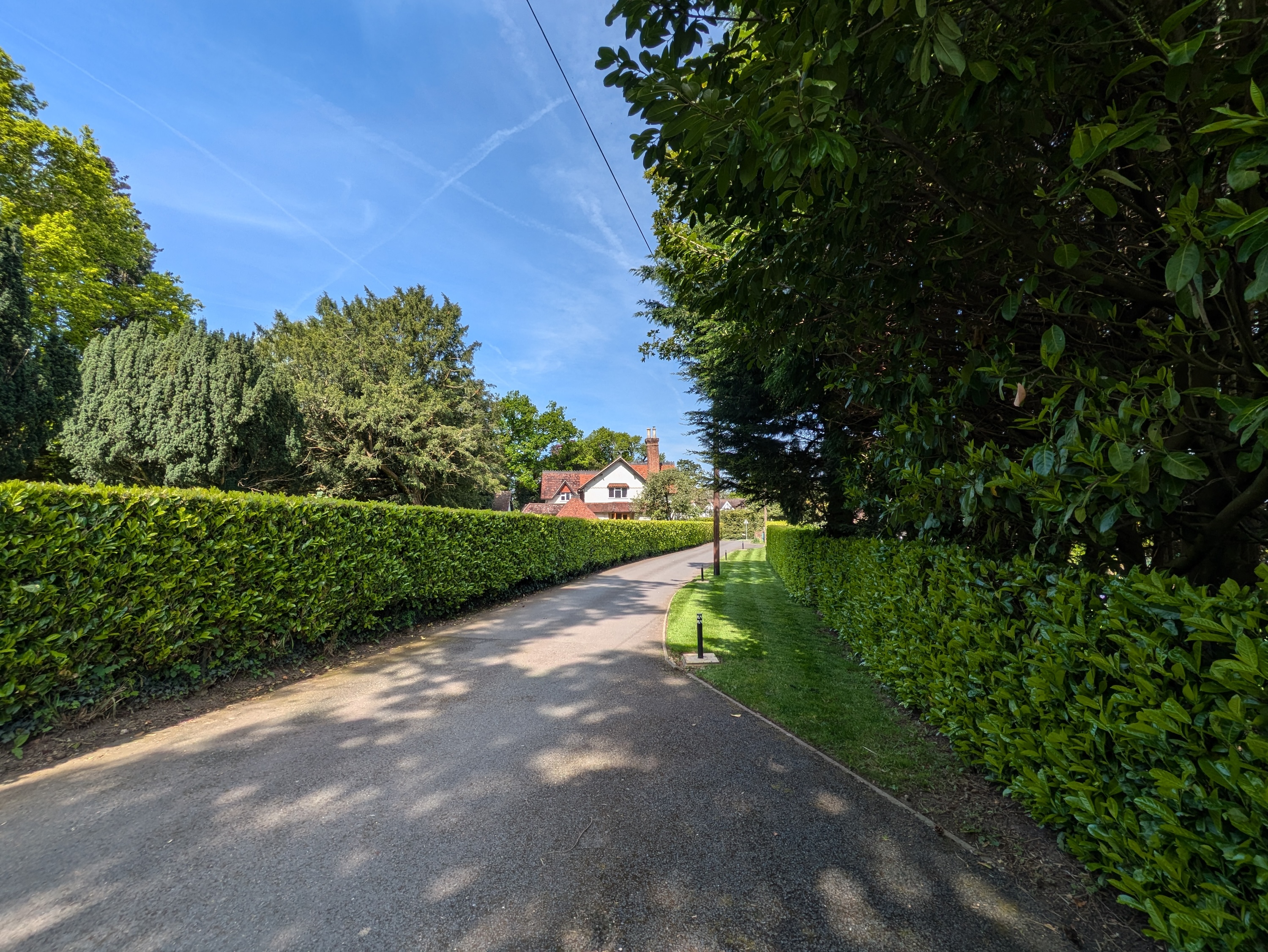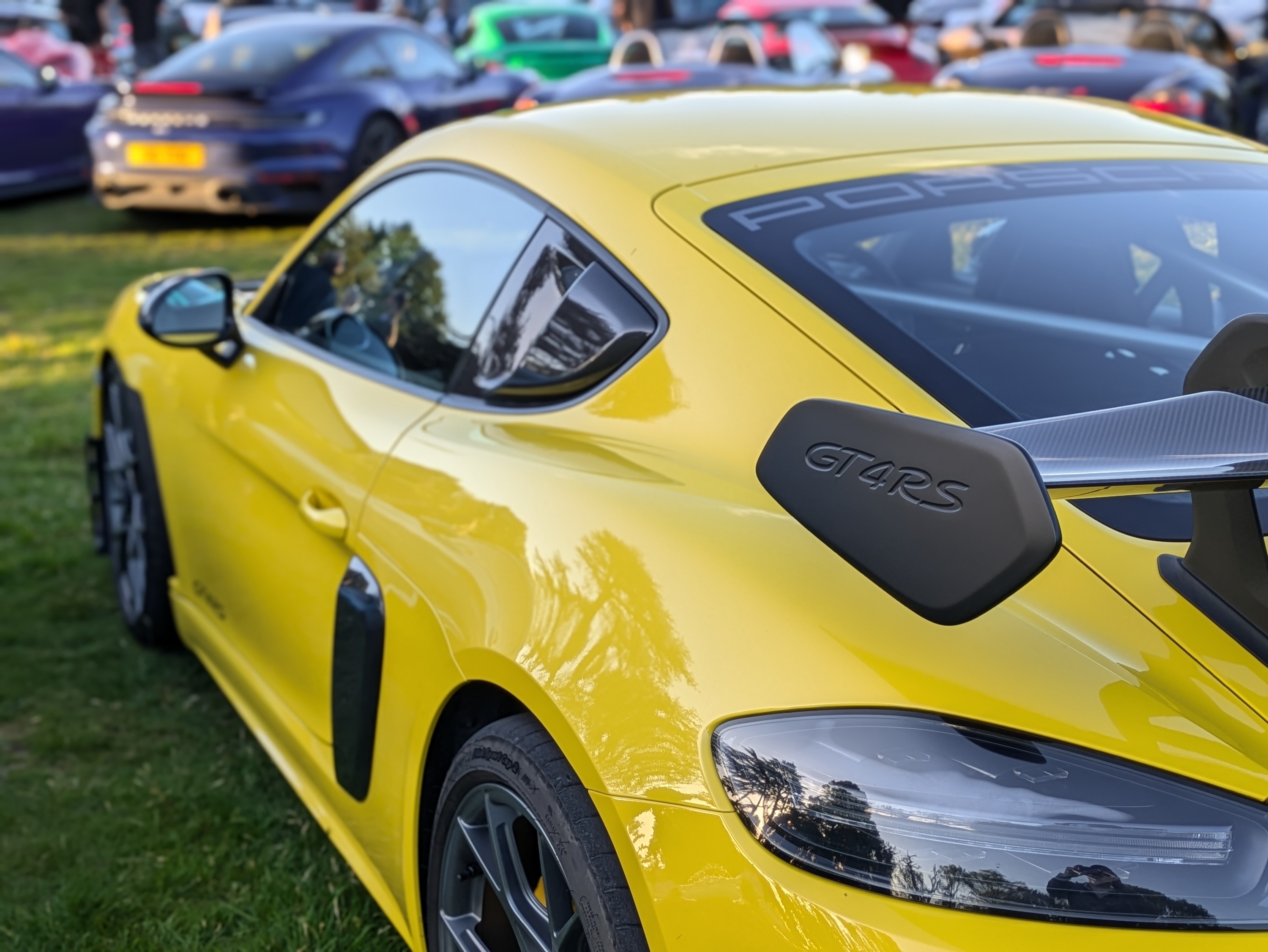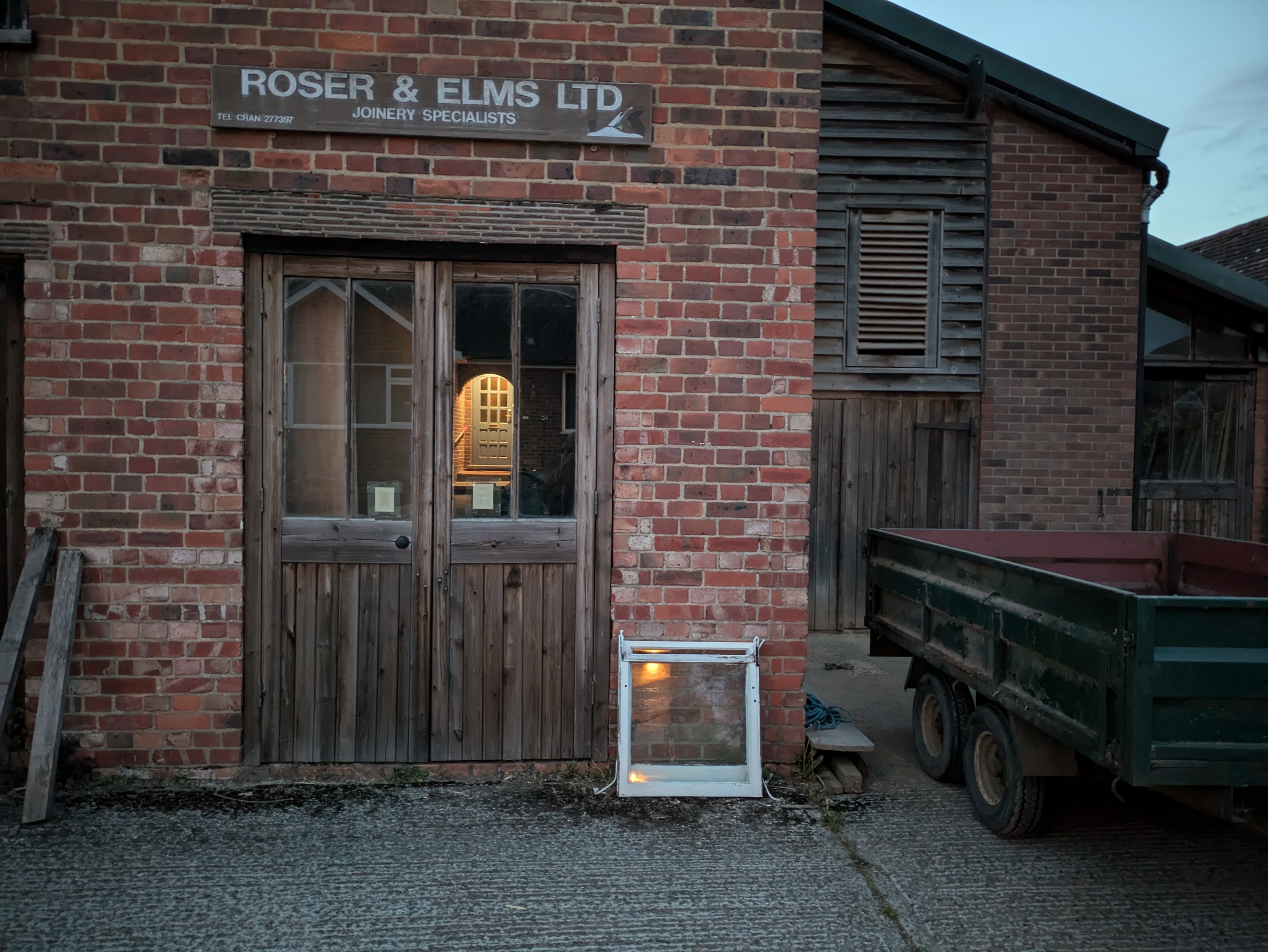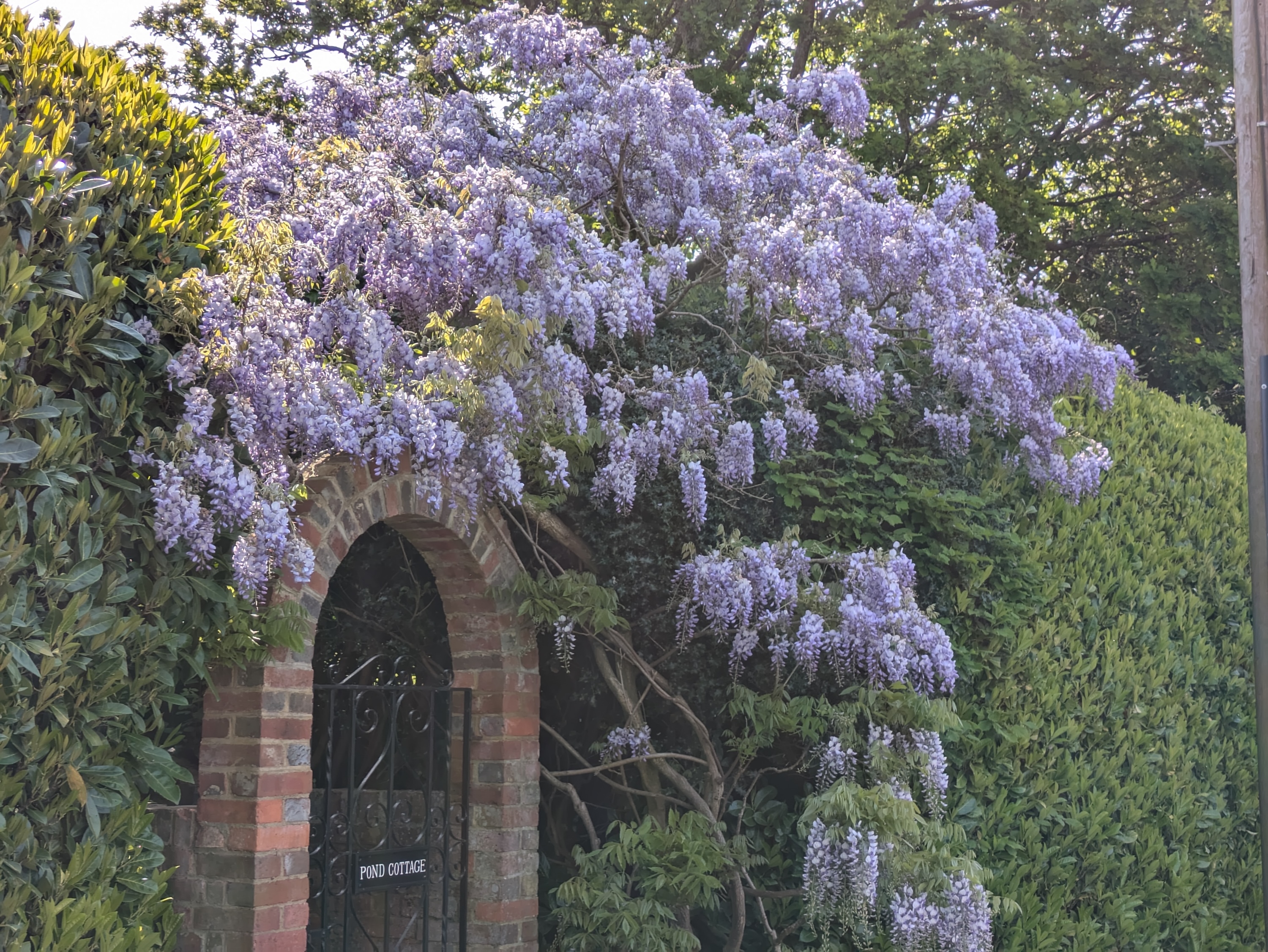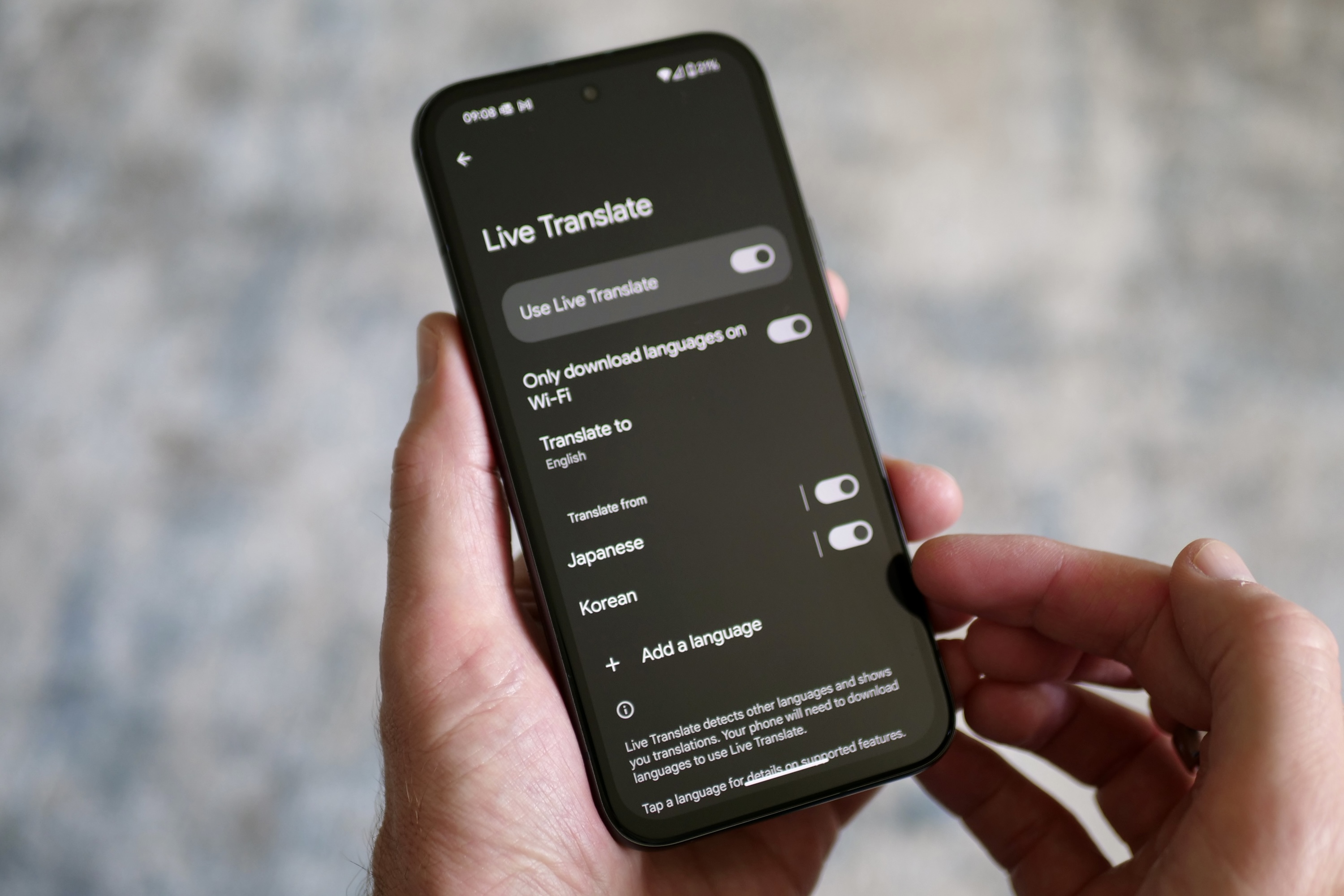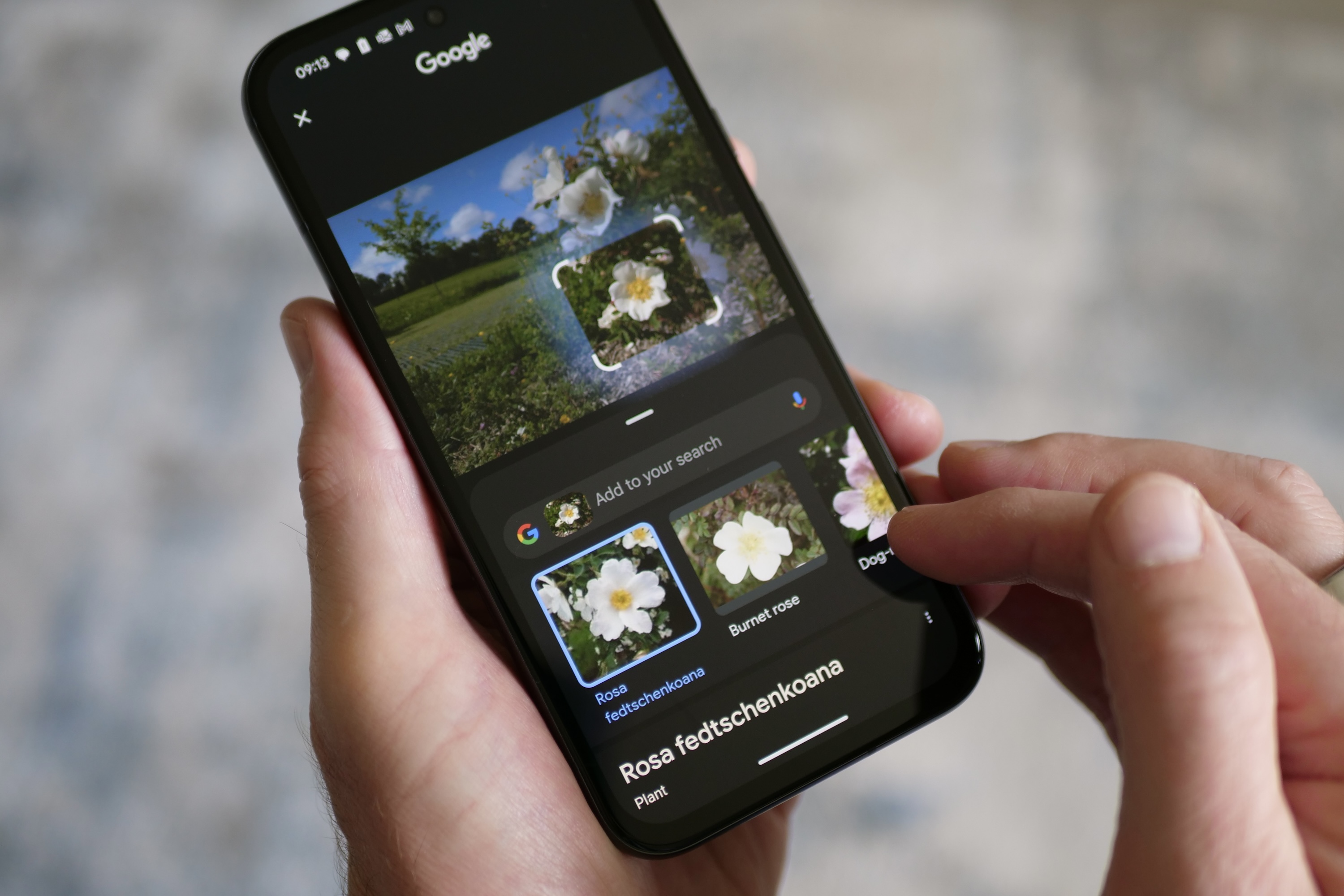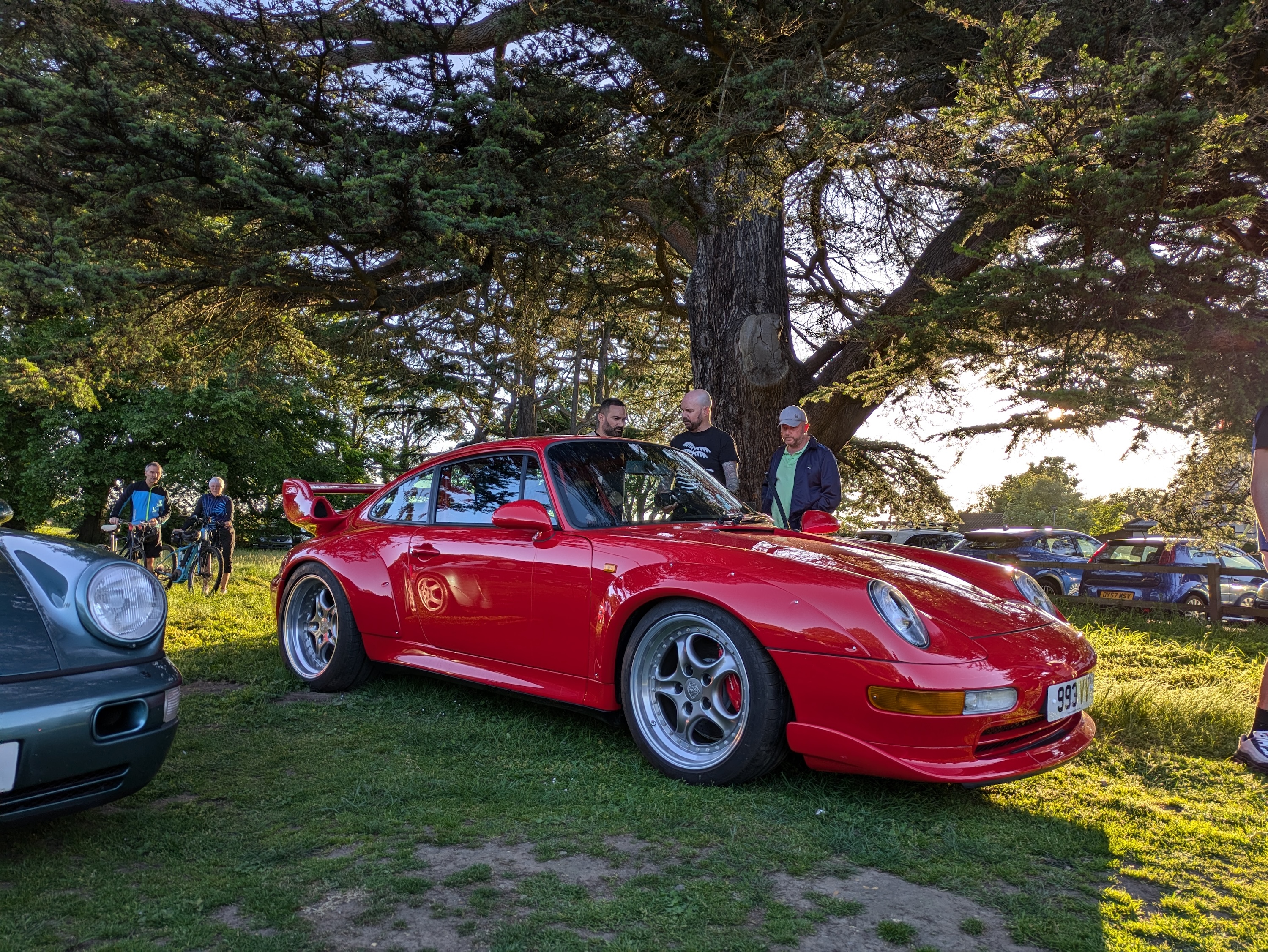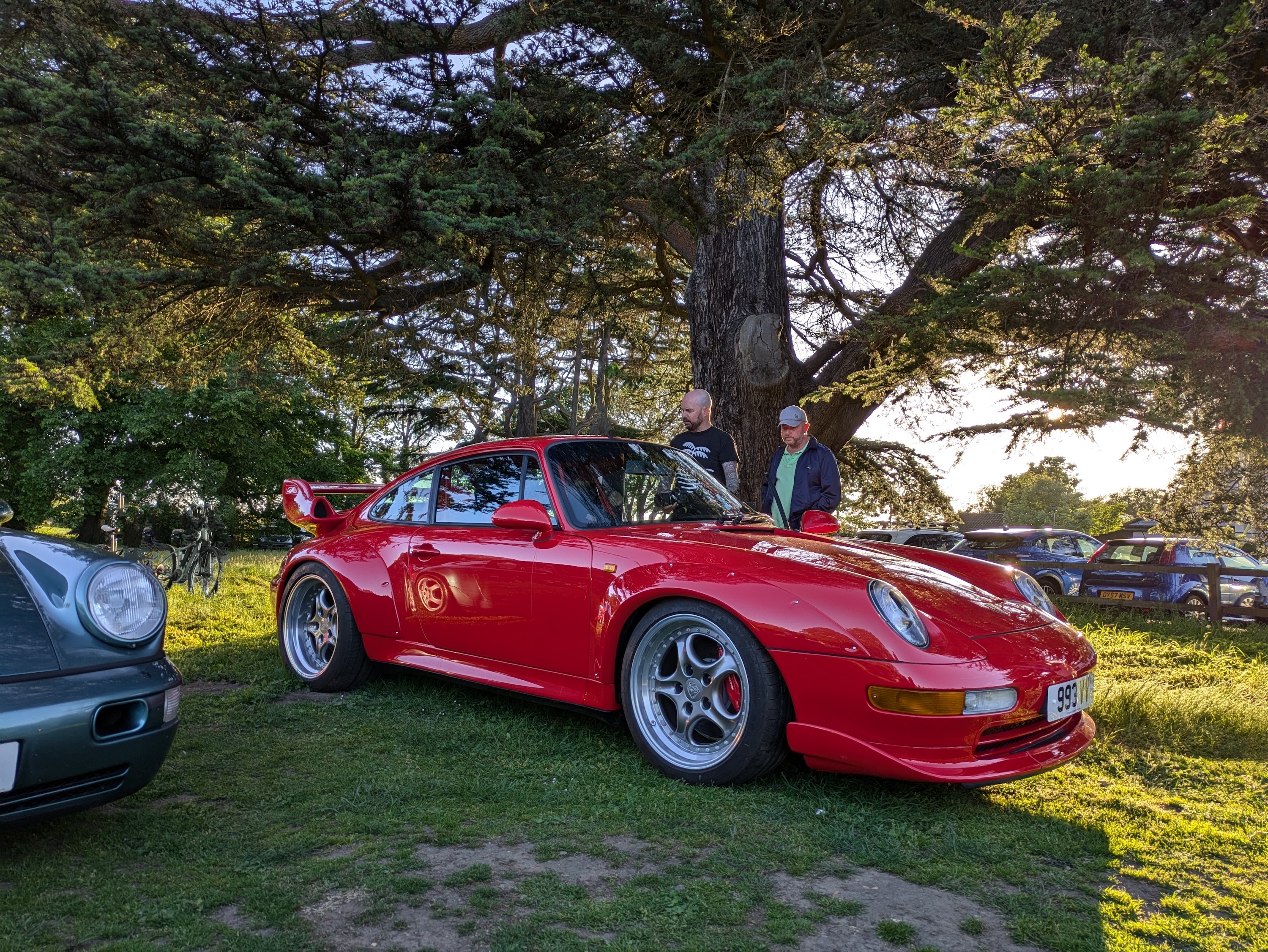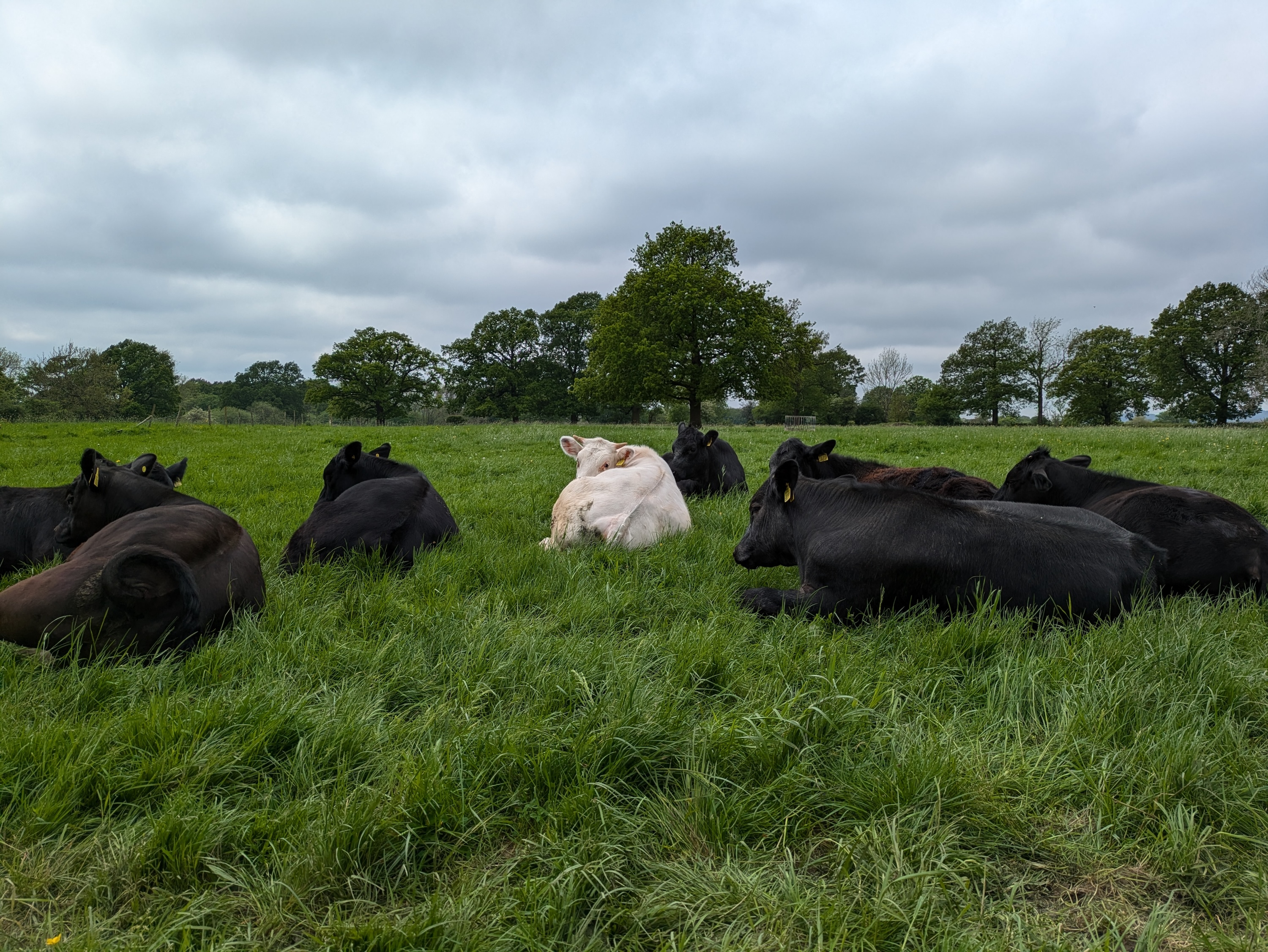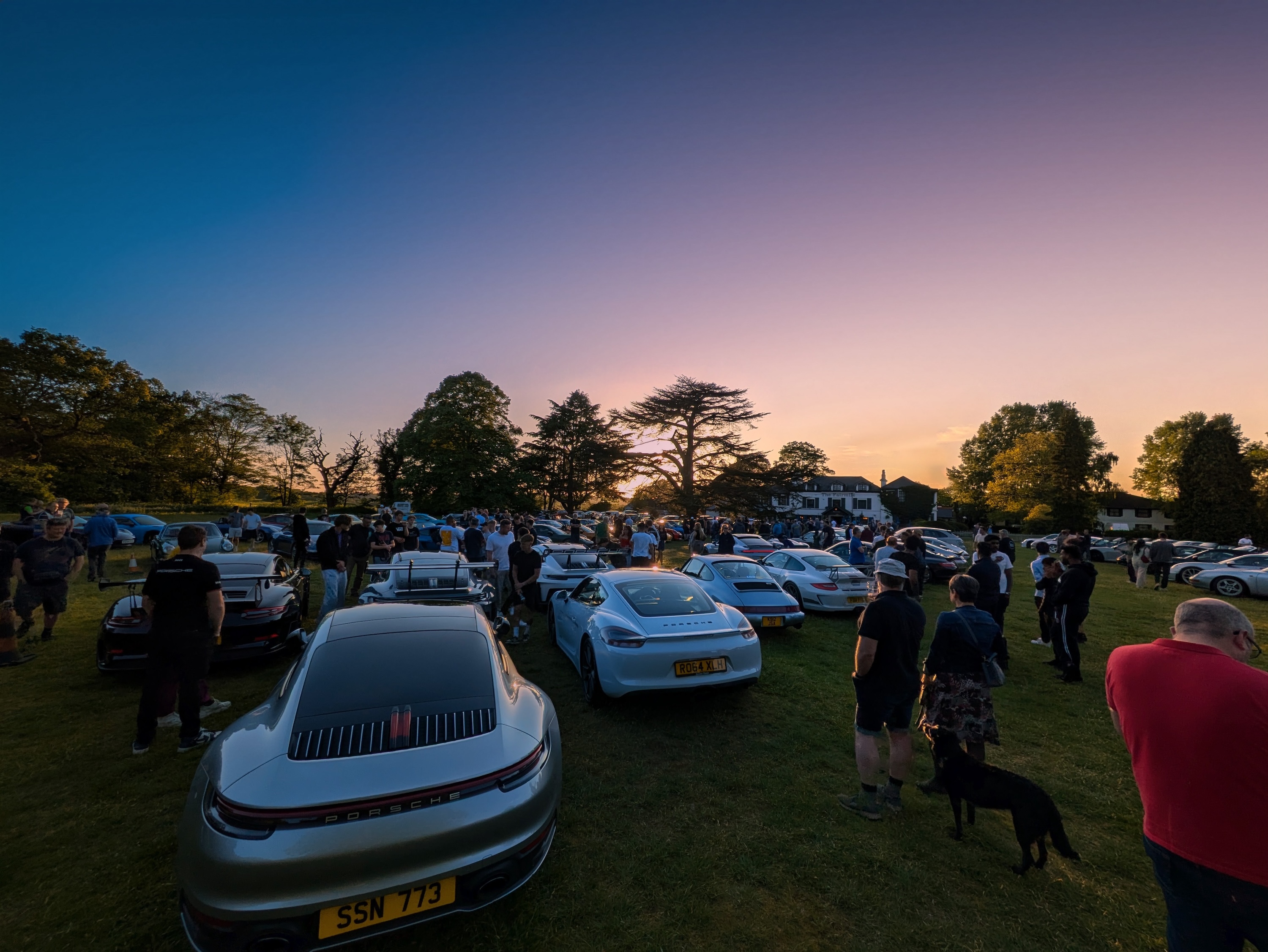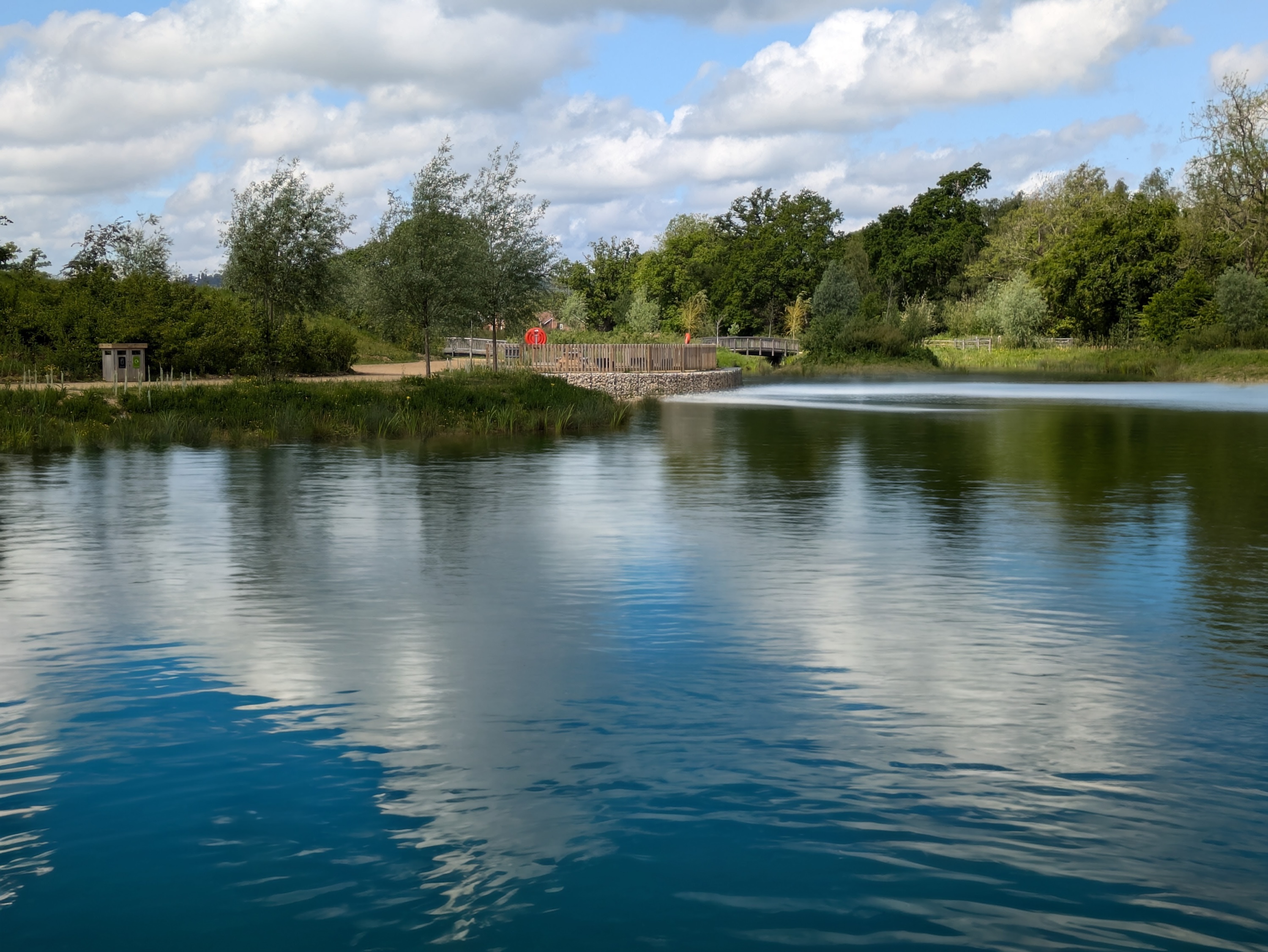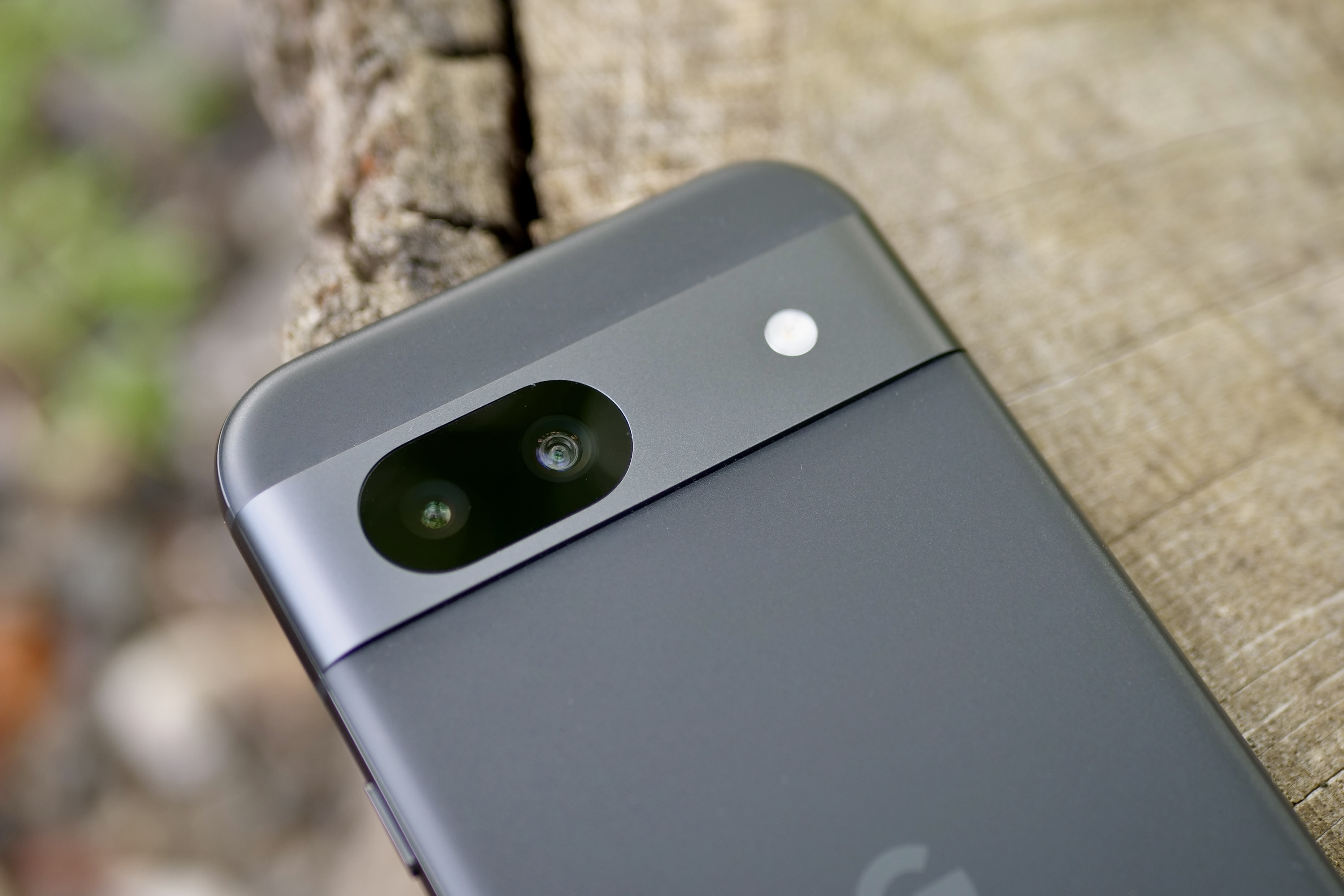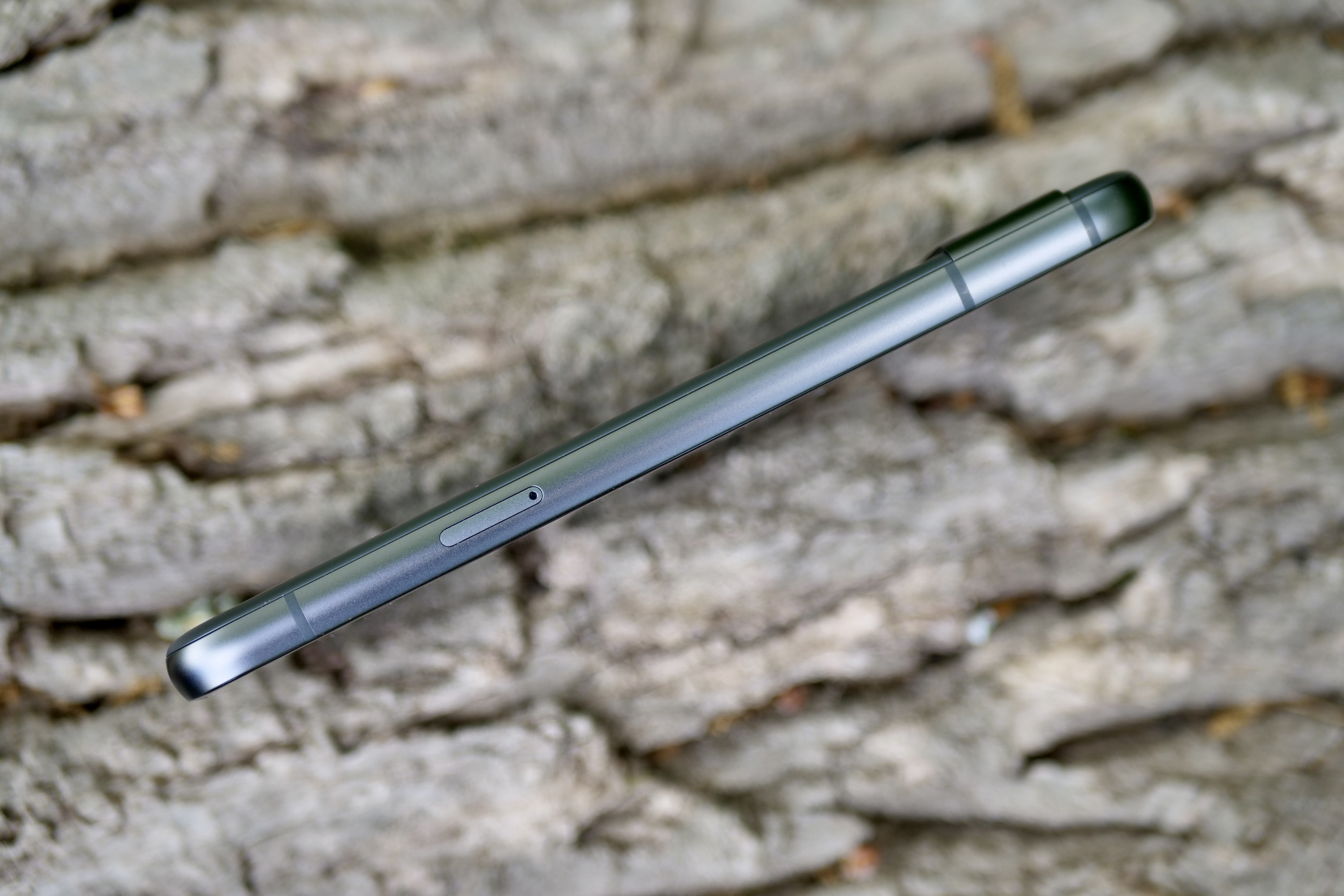“The Google Pixel 8a is excellent value thanks to its great software, a vibrant and exciting camera, the latest AI smarts, and a pretty design.”
- Compact and light
- Vibrant camera
- AI photo-editing suite
- Easy to use Android software
- Long update commitment
- Cheap-feeling body
- Slow charging
- One-day battery life
Rarely is there a more tempting phone than the cheapest Google Pixel model, and the Pixel 8a is the latest to be released.
It appears to be another great value model you’d be mad not to consider, but before handing over the money in anticipation of using the ever-reliable camera and software, is it as good as we all hope — and have come to expect?
Google Pixel 8a: design

The Google Pixel 8a looks so much more modern than the Pixel 7a, and it’s all due to the round corners, which soften the design and make it more comfortable to hold, too. It’s a compact phone compared to the massive Pixel 8 Pro, the Samsung Galaxy S24 Plus, and Galaxy S24 Ultra, with the 72mm width and 8.9mm thickness ensuring it is never a bother to use with one hand.
However, the metal frame and plastic rear panel provide little grip, so you’ll have to hold it tightly or put it in a case if you want to avoid any accidents. I’ve been using Google’s silicone case, and while it doesn’t attract as much fluff and dust as the Pixel 7a’s case, it doesn’t really up the grip factor much. As such, it may be worth looking for another Pixel 8a case if you’re prone to dropping your phone. The 188-gram weight is welcome, and I have not found it annoying in my pocket or bag.

Google’s trademark camera visor looks excellent and gives the back of the Pixel 8a presence and identity, and confirms it as one of the Pixel family. I’ve been using the Pixel 8a in the Obsidian color, which is very dull, but you can also get it in a beautiful Bay blue, a Porcelain white, or the new Aloe green. I’d suggest getting one of the brighter colors to really make the great overall design shine.
Even though the case doesn’t add much grip, it does cover up the slightly cheap-feeling plastic rear panel, which is smooth to the touch and has an unpleasant amount of flex when pressed down. It’s not as tactile as the Google Pixel 8’s glass or as fancy as the Samsung Galaxy A55’s glass, and even the plastic Galaxy A35 manages to improve on it. Corners had to be cut to get the price right, but otherwise, the Pixel 8a is a compact, manageable, and pretty phone; just don’t expect it to feel expensive.
Google Pixel 8a: camera

I’m willing to bet one of the reasons you want a Pixel 8a is the camera, and rightly so, based on other models. But how does the cheapest model in the Pixel range perform? There are two cameras on the back: a 64-megapixel main camera with an f/1.89 aperture and both optical and electronic stabilization (OIS and EIS), plus a 13MP wide-angle camera with a 120-degree field of view. The selfie camera at the top of the screen has 13 megapixels and fixed focus.
When I first started with the Pixel 8a’s camera, I wasn’t quite sure about its performance. There seemed to be something a little off about its exposure and contrast in some situations. Since then, I’ve taken more than 120 additional photos, and for the most part, the problem has not continued to cause concern. However, in some circumstances — harsh lighting in particular — the Pixel 8a didn’t take the photos I expected. Was I expecting too much?
No. While the Pixel 8a’s camera isn’t perfect, it is really good, and you won’t regret getting it. Colors pop, images are filled with detail, and there’s wonderful consistency between the main and wide-angle cameras. I shot photos at an evening car event, and the Pixel 8a wasn’t fazed by the low sun and still managed to make the metal shine and the colors stand out. And it didn’t obscure detail in the shadows. At night, it takes sharp, bright photos with only a hint of blur when you crop the image.
While the Pixel 8a’s camera isn’t perfect, it is really good.
There’s no optical zoom here, just like the Pixel 8, but the camera does have a 2x shortcut to tempt you. The photos it takes are quite soft and it doesn’t always focus as you’d expect. And although you can see what you’ve taken a photo of using the 8x Super-Res zoom mode, the digital enhancement is obvious. Creative opportunity comes from the editing suite in Google Photos more than the camera, and to change this, you’ll have to splurge for the Pixel 8 Pro. It had a shaky start, but I’ve warmed to the Pixel 8a’s camera a great deal.
Google Pixel 8a: AI
The Google Pixel 8a will get some Gemini Nano AI capabilities in the future through a software update, but at the time of writing, these are not available. When it does arrive, it’ll have to be enabled in the developer options menu when other features like Summarize for Recorder and Smart Replies are activated. In the meantime, it has Circle to Search, Audio Emojis, and Call Assist. They likely aren’t features you’ll use all the time, but I’ve found Circle to Search and the Call Screening features handy, and they work well. I’ve not found a time when an Audio Emoji would be appropriate, though.
It’s in Google Photos where you’ll most likely encounter Google’s AI the most, as it includes Magic Eraser, which can remove objects from images, and Magic Editor, which changes the style and look completely. Results are a mixed bag, with the AI proving to be quite effective in some situations and absolutely useless in others. For example, changing the look of the water or the sky using Magic Editor creates some striking, but often obviously unrealistic images.
While Magic Eraser is good at removing some items and people from images, it often fails to remove them completely, resulting in a patchy, distracting look. Used carefully, though, it can work really well. The same can’t always be said for the stylized mode, which has some very odd ideas about how to alter an image. Sometimes, it creates a fun, artistic interpretation, but most of the time, it’s either weird or plain awful-looking. The AI features aren’t a reason to buy the Pixel 8a, but it’s great to see all the same features that are present on the more expensive Pixel 8 series phones on the cheapest one, too.
Google Pixel 8a: screen and performance

No matter whether you buy the Pixel 8a, the Pixel 8, or the Pixel 8 Pro, all are powered by Google’s Tensor G3 processor. The Pixel 8a has 8GB of RAM and either 128GB or 256GB of storage space, unlike the Pixel 7a, which only came with 128GB of storage. If you plan on keeping the phone for a long time, it may be worth getting the model with the larger capacity, but if you’re taking a lot of photos, then a Google One subscription may work out to be the wiser choice.
I’ve not experienced slowdown or performance issues, but the Tensor G3 isn’t the most efficient processor, which we’ll come back to in the battery life section. Playing Asphalt 9: Legends is fast and exciting, but the back of the phone does get warm to the touch after about 15 minutes. Not hot, just some evidence the phone is working quite hard. On an uncharacteristically warm day in the U.K., the phone also got quite hot when browsing apps outside in the shade. It’s not something to be overly worried about, but it appears to run hotter than phones with the Qualcomm Snapdragon 8 Gen 3 processor and more comprehensive cooling, such as the OnePlus 12.

The screen is a 6.1-inch, 20:9 aspect ratio Actua display with a 1080 x 2400 pixel resolution and a 120Hz maximum refresh rate. This is up from the 90Hz refresh rate on the Pixel 7a, but won’t be as effective at managing battery efficiency as the Pixel 8 Pro’s 1Hz to 120Hz adaptive rate, as it can only switch between 60Hz and 120Hz. It also needs to be manually enabled in the settings, as the Smooth Display feature was not activated by default on my review model. While I really noticed the bezels when I first started using the phone, they’ve blended into the background since.
Google states that the screen brightness has a maximum of 1,400 nits and a peak of 2,000 nits, and while I haven’t noticed any problems seeing it in sunlight, the angle of the screen seems to affect it. When I was taking photos with it and the Nothing Phone 2, the Nothing’s screen was brighter and easier to see at unusual angles compared to the Pixel 8a’s. This may have to do with the ambient light sensor, which does tend to lower the brightness as much as it can, presumably to save battery, or the older Gorilla Glass 3 over the screen, which is not as effective at dealing with reflections.
Google Pixel 8a: software, calls, and connectivity

Android 14 is installed on the Pixel 8a, and Google will support it with security and Android version upgrades for seven years. This is a big benefit on a reasonably priced phone, where short support periods are common, and means it will have the latest software for the entire amount of time you’d realistically want to keep it. Samsung offers five years of support for its A-series phones, and the OnePlus 12R only gets three years of version updates.
I love Android on a Pixel phone, from the wonderful haptic feedback throughout to the accuracy of the Gboard keyboard, plus the simplicity of its basic controls and extensive features. It’s effortless and friendly to use. Android on the Pixel 8a also looks and performs just like it does on the Pixel 8 and Pixel 8 Pro, and I have had no issues with installing or using apps. The Pixel 8a’s software provides a smooth, fast, logical, and simple ownership experience that’s tough to beat.

Similarly, calls sound loud and clear, and I never have to search for a sweet spot to hear the caller thanks to the excellent speaker. It pulls in Wi-Fi, 4G, and 5G signals, but does sometimes struggle in poor coverage areas more than some other phones I’ve used recently. And the Wi-Fi isn’t always effective at maintaining a strong signal either. It’s not disconnecting all the time, but it doesn’t cope with weak signals as well as my iPhone 15 Pro Max, for example.
You can use the in-display fingerprint sensor or face unlock to secure the Pixel 8a. The fingerprint sensor has been a little fickle, but does seem to have settled down into working regularly. The face unlock system is very fast and often beats me to the fingerprint sensor anyway.
Google Pixel 8a: battery and charging

The official word from Google is that the Pixel 8a will return an average of “24-plus hours” of life from the 4492mAh capacity battery. As usual, for you to get close to this, it very much depends on how you use the phone. My use is mostly between three and four hours of screen time per day, with mixed use, and I’ve become accustomed to seeing about 25% remaining by the end of the night. With light use of about two hours of screen time per day, the Pixel 8a’s battery still won’t quite make it all the way through day two.
Watch 30 minutes of 1080p video on YouTube and about 4% of the battery will disappear, while playing 30 minutes of a game like Asphalt 9: Legends uses about 10% of the battery. Google may say the Pixel 8a has fast charging, but it’s a bit of a stretch as it maxes out at 18 watts using a USB-C cable (there’s basic 7.5W wireless Qi charging too). Using an Anker 313 charger and USB cable for charging, it only reached 40% in about 30 minutes, and it took a little over 90 minutes to reach 100%. The Pixel 8a is not a fast-charging phone.
If you want a phone with stamina and speedy charging, the Pixel 8a probably won’t be for you, and I certainly wouldn’t consider it a device for “power users,” which I view as someone who racks up more than five hours of screen time per day and always requires a sufficient power reserve for more. The short(ish) battery life will give you some anxiety, and the slow charging looks bad next to the OnePlus 12R. Everyone else needs to go into the Pixel 8a expecting a day’s battery life, and anything more from it will be a bonus.
Google Pixel 8a: price and availability

The Google Pixel 8a costs $499, or 499 British pounds, for the standard 128GB model, or you can pay a little more to get the 256GB version ($559, or 559 British pounds). It’s available to buy now.
What else should you consider? The Samsung Galaxy A55 is one of its biggest competitors, along with the OnePlus 12R, and both offer different advantages. The OnePlus 12R has great performance, long battery life, and true fast charging, but the software won’t be to everyone’s taste. The Galaxy A55 looks great and is made from high-quality materials, plus it has good software and years of support, but it’s not as comfortable to hold as the Pixel 8a and the camera isn’t as fun.

Pay a little more, and the Nothing Phone 2 and Samsung Galaxy S23 FE come into view, along with the Google Pixel 8, and all three are a step up from the Pixel 8a. Expect faster performance, higher-quality materials, a better design on the Nothing Phone 2 and Galaxy S23 FE, and a somewhat stronger camera on the Pixel 8 for just a little more money. However, the Pixel 8a still represents excellent value if these aspects don’t concern you.
Google Pixel 8a: verdict

For the Pixel 8a to be the best-value Pixel phone this year, it needs to beat the Pixel 8. It’s $200 cheaper, which is a very good start. It also has the same processor, a pretty similar camera, and will have most of the same AI features too. Unless you find an offer on the Pixel 8 that brings the price down to under $600 (which does happen), the Pixel 8a is a very good purchase and an excellent value considering the software, camera, and performance.
The Pixel 8a is a very good purchase and an excellent value.
But it’s not a perfect buy. The Pixel 8a’s battery life is a disappointment and worse than I had with the Pixel 8. The body is slippery and a bit cheap, the screen is sometimes hard to see, and the camera isn’t always quite as refined as I’d like. It means other smartphones around the same price aren’t soundly beaten by the Pixel 8a, which has as much to do with the improvement in mid-priced phones as it has to do with any Pixel shortcomings. It means more choice, and it’s a great position for us to be in as buyers.

It may sound like I’m being quite tough on the Google Pixel 8a, so I’ll put aside the negatives and tell you why this is another cheap Google phone to rush out and buy, provided you’re aware of the few downsides. If you’ve questioned whether you need a $1,000 smartphone, but still want the best software, a camera that takes vibrant and exciting photos, some of the latest AI smarts, and a pretty cool design, then the Pixel 8a is exactly the phone for you.

